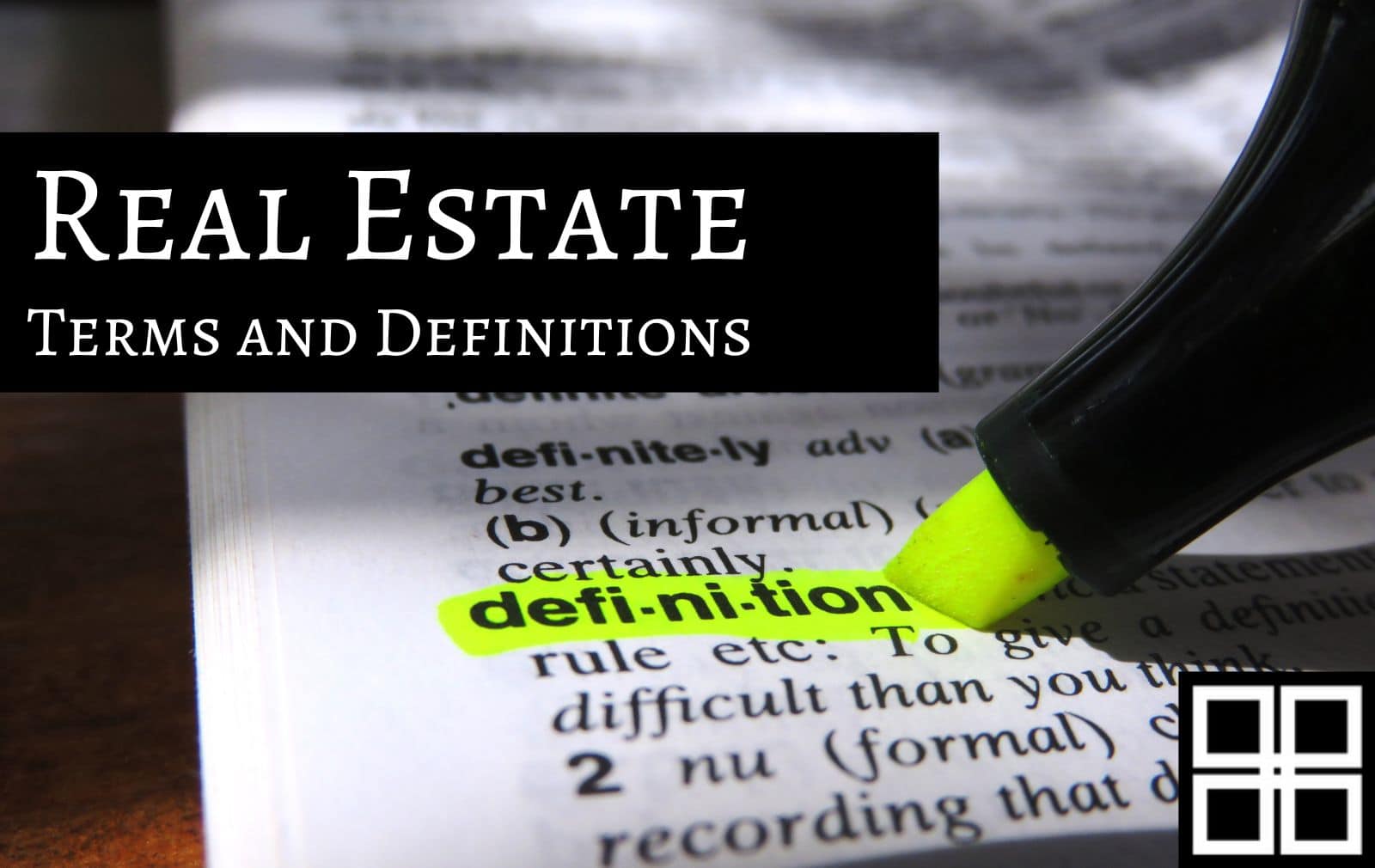Definitions of Real Estate Terms
In 2021, over 34 percent of homebuyers will be first-timers. Many of them probably found the process intimidating. Real estate is one of the most complicated financial transactions you will ever make. It’s also rife in unfamiliar jargon.
Here is a list of real estate terminology with their definitions. You’ll never have to wonder about what these things mean again.
General real estate terms
Residential real estate: Residential property is developed for the purpose of housing people. Single-family homes to multi-family apartments are all included.
Real estate agent: A real estate agent who represents buyers and sellers in real estate is a licensed agent. During the purchasing process, they will help you to find properties that match your criteria, make offers, and negotiate with the agent of the seller. They will help you prepare your home for sale and list it. They will also manage open houses and show-offs, negotiate with the buyer’s agent, and draft a purchase and sales agreement. Choosing a great real estate agent can make a huge difference in the real estate process.
Realtor: A Realtor can be a real estate professional or another profession who is a member of the National Association of Realtors. To be an agent you don’t have to belong to the NAR, but to use the Realtor title you must agree to its code of ethics and be a member.
Real estate commissions: While some agents charge a flat rate, the majority of real estate agents receive a commission based on a percentage of sales.
Real estate broker: A real estate brokerage is a realty agent that has undergone additional training and licensing to be able to legally conduct property transactions. Brokers are responsible for reviewing the final contracts and may even have drafted the boilerplate contract to ensure compliance with local and state laws. If they are not real estate brokers themselves, then the agents will work for or under a broker.
FSBO: an acronym for For Sale by Owner (FSBO), which means “fizz-bow.” It’s a term used to describe people who sell their own homes without the help of a real estate agent. Buying a home from a seller who is selling it FSBO may result in significant savings. However, this depends on the seller’s personality, their experience and timeline.
Mortgage: A mortgage loan is specific to real estate. It is a long-term loan that you repay in monthly installments. The property you are purchasing acts as collateral. Mortgages can have fixed or variable rates of interest.
Commercial real estate: consists of property that is used to operate a business. It is designed to generate revenue. Commercial real estate includes retail spaces, warehouses and factories, as well as office buildings, apartment complexes with more than four apartments.
Foreclosure: When a bank or mortgage lender seizes property in default against the will of the owner, it is called foreclosure. If you default on your mortgage, it is stated in your mortgage agreement that the bank may take possession of the property by foreclosure if you do not make payments.
Real estate owned (REO): An REO is a property that has not been sold at a foreclosure auction. REO properties are those that have been repossessed by the bank after defaulting owners. When a property fails to sell for the amount needed to pay off the loan, the lender (often a bank) takes over ownership.
Homebuying Terms
Buyer’s agent: An agent for buyers represents the person or party that is looking to buy real estate.
Contingencies: A clause in the purchase and sale contract that specifies an action or requirement to be completed (or within a specified timeframe) is called a contingency. Some of the most common include appraisals, home inspections, mortgage approvals, sales of previous homes/purchase of a new home, and title searches. The contingency allows you to cancel the contract with little or no consequences if the condition is not met.
Counter-offer: A counter-offer responds to the bid of a buyer. This is a part of the negotiation process between buyers, sellers.
Home inspection: A house inspection is usually done after the initial contract between buyer and seller. A professional inspector will evaluate the condition of the house, ensuring that it is safe and livable, and in compliance with current building codes. It can reveal any dangers and indicate the need for repair by a licensed contractor such as roof damage where a licensed residential roofer would be needed.
Home appraisal: A home appraisal is a process through which a real estate appraiser determines the fair market value of a home. It can assure you and your lender that the price you’ve agreed to pay for a home is fair. Appraisals are also often used to determine property taxes, making appraisals a requirement in most counties.
Appraisal gap: An appraisal gap is the difference between the current market value determined by the appraiser and the amount you agreed to pay for the home. A low appraisal does not mean you have to terminate the sale, but it may mean you have to renegotiate with the seller or pay the difference out of pocket.
Real Estate Purchase Contract: The Real Estate Purchase Contract, or REPC as it is called (pronounced “rep-see”), is a legally-binding document that details the terms and conditions for a real estate sale or transaction. The contract will outline the terms and conditions of a property sale or transaction, including the price that the buyer is willing to pay, a timeline for purchasing the property, repairs the seller must make, as well as any contingencies. REPC is referred to in some states as a Purchase and Sale Agreement (the initial contract), or a Purchase Agreement (the final contract signed at closing).
Walk-through: This is the last tour that a buyer does of the property before closing. It is important to make sure that the house is in the condition it was in when you bought it or that the seller made the agreed-upon improvements.
Mortgage Terms
Contingency: An appraiser is an individual with the necessary qualifications who can determine the value of your home. This may be done to calculate property taxes or for mortgage purposes. They will compare the size, location, and quality of the home to similar properties in the area.
Closing Costs: Closing costs is the amount of money required to complete the sale or purchase of a house. These costs can include commissions for real estate agents, lending fees and mortgage discount points. They may also include property taxes, title fees and tax stamps.
Down payment: A down payment is a cash payment made by the buyer towards the purchase of a property. The rest will be financed through a mortgage. Mortgages that are conventionally financed require a 20% down payment.

Escrow: Escrow is a term used to describe the funds held by a third party who has no interest in the transaction (i.e. neither the buyer nor seller). In escrow, you may hold the earnest money as well as administrative fees and the purchase amount. A title company or closing agency will usually manage the escrow and transfer funds from and to sellers, buyers, and their respective lenders during the transaction.
Escrow Account: An escrow is a financial instrument managed by a third-party that holds in escrow funds involved in real estate transactions. The account is usually used to hold the initial deposit of the buyer on a home while the contract is being negotiated. An escrow account may hold homeowner’s taxes, homeowners insurance, and mortgage insurance after the sale. These accounts are required by some lenders to ensure that mortgage holders pay their bills on time.
Mortgage broker: The mortgage broker is a third party that acts as an intermediary between the buyer and lender. They will take your information, and send it to several mortgage companies in order to provide you with a list of comparative loans along with their interest rates and conditions.
Online lender: A mortgage lender without a physical location is an online lender. The entire loan process takes place remotely via the website or platform. Its fees and rates are often lower because of its low overhead.
Pre-approval: This is a confirmation that a lender has agreed to grant you a loan in principle, up to an amount. Some agents will not accept you as a customer unless you are pre-approved. Many sellers also require that buyers have pre-approval before they bid on a home.
Title insurance: Title insurance protects mortgage lenders, homebuyers and property owners against issues with the deed of a property after ownership has been transferred. If, for example, the wrong person had inherited the property, and sold it to your family, title insurance could protect you from losing it to the owner.
Home selling terms
Comparative market analysis: When preparing a listing, a real-estate agent will perform a comparative market analysis (CMA). This is done to determine the value of a property and its asking price. To determine, they will examine comparable homes that have sold in your area recently.
Fair market value: is the price that a buyer will pay for a house on an open market. It ignores current market conditions, i.e. how hot your local real estate market may be at the moment, to calculate the value of a home based on its fundamentals.
Listing agent: A listing agent is a real estate agent that represents the seller by putting the house on the market.
Open house: A time when the home is open to the public. People don’t have to make an appointment. Open houses are often organized by real estate agents.
Seller concessions: These are items the seller will pay on behalf of the purchaser. Seller concessions can be used to cover closing costs or provide a stipend towards a major expenditure, such as a new carpet.
Seller disclosures: In some states, you may have to fill out a disclosure form to show prospective buyers. You would then list any defects or repairs you are aware of in your home.
Additional real estate terms
Earnest money: Earnest money is basically a deposit that a buyer pays to the seller when they sign a contract of purchase and sale. It shows you are serious about purchasing a home. Earnest money amounts can vary depending on the local real estate market and your personal preferences, but they are usually around 1 percent of a home’s price.
Easement: A legal right granted by a property owner is an easement. This easement gives the other party access to or use of portions of your land. The scope of easements and the hassle they cause can vary. An easement could be already in place on a property, giving a utility the right to repair a sewage pipe or an electrical pole. An individual owner may grant an easement to their neighbor to allow them to use the driveway.
Homeowners’ Insurance: This is a policy that covers a home and the items inside it against destruction or damage. It also protects its owner from any liability if damage occurs to a guest or neighboring property. Most lenders require that mortgage applicants purchase homeowners insurance.
HOA: The homeowners association is an organization of local residents that deals with common facilities and areas, as well as issues that are relevant to all households. The HOA maintains a set of rules called covenants and charges residents fees to cover the costs of maintaining an area. The HOA fee will depend on the area you live in and the amenities available.

House title: The house title is a formal way to indicate ownership of a home. It gives you rights and a legal interest in the property. This is often written on the property deed.
Property taxes: Your state sets the property taxes. Your property tax amount is determined by the value of your home and the local tax rates in your municipality or county. Typically, property taxes fund city parks, police and fire departments, schools and other amenities.
Homestead Exemption: A homestead exemption minimizes property taxes for homeowners. It’s also a legal provision offered in most states that helps shield a home from some creditors following the death of a homeowner’s spouse or the declaration of bankruptcy.
Types of homes that are common
Single family: Single-family houses are built and occupied exclusively by a single group of related people. They are usually detached dwellings.
Multi-family: A building with at least two separate units is designed to house more than one family. Buildings that have more than four units are classified as commercial properties, while those with 2 to 4 are residential properties.
Condominium: A condominium (commonly called “condo”) is an individual unit that you can purchase and own in a larger community, typically within a multi-story structure. Most condo communities are managed by an HOA.
Townhome: A townhome is a narrow multi-level residence that shares walls with other homes. They have their own entrances, and may even have a small yard in the front or rear.
Manufactured home: A manufactured home is a prefabricated type of residence. The various components are assembled and built in a factory, and then transported to the site.
Stick-built: A stick-built home is an individually-constructed residence, built from scratch on site. The walls and roof of the stick-built home are typically framed by beams, or sticks. Stick-built houses are still used for detached American homes, even though they’re more expensive than prefabrication.










